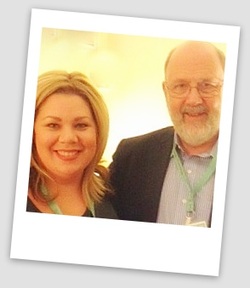|
|
 As we come to the close of 2013, we are so happy to announce the birth of our new non-profit ministry, Stripped Love. Formerly a ministry of Madison Park Church known as Butterflies of Hope Outreach, we have served women in sex trade in Madison County since 2010. Today we work to help birth new ministries such as ours in central Indiana and across the U.S. to combat the bondage of human trafficking through the power of divine love. Our purpose is to love women as they are, where they are. We have become friends with women in strip clubs because we believe God wants these women to know they are loved. We believe God’s love is transformational and we have witnessed how this love can change the lives of women caught in sex trade and the women who minister to them. Simply put, we believe #loveheals. Human trafficking is a global epidemic and the humanitarian crisis of our day. We estimate some 100-300,000 underage women are trafficked in the United States each year. Central Indiana is considered a red zone of activity according to the National Trafficking Resource Center. 70% of female victims are trafficked into sex trade, these women work as strippers and prostitutes. Our presence in these clubs is crucial because in us resides the power of God and God's love sets women free. Here’s how you can help:
3 Comments
 From the vault; a post from Christmas 2011 In those days Mary set out and went with haste to a Judean town in the hill country, where she entered the house of Zechariah and greeted Elizabeth. When Elizabeth heard Mary’s greeting, the child leapt in her womb. And Elizabeth was filled with the Holy Spirit and exclaimed with a loud cry, ‘Blessed are you among women, and blessed is the fruit of your womb. And why has this happened to me, that the mother of my Lord comes to me? For as soon as I heard the sound of your greeting, the child in my womb leapt for joy. And blessed is she who believed that there would be* a fulfillment of what was spoken to her by the Lord.’ Luke 1. 39-45 (NRSV) I have never liked hospitals. The way they smell like cleaning products and watered down gruel. I have never liked the way shoes squeak on the linoleum tile or that the hallways are cluttered with space age machines and gurneys and bed pans. Never mind the fact that the inhabitants of the hospital are sick folks, which makes the whole experience like descending into a universe of perpetual germs. For my familiarity of hospitals, and for many other things, I blame my mother. A woman who was ever eager to visit hospitals and nursing homes and places where mentally handicapped kids lived, my mother spent most of her life loving old people or sick kids or needy friends. One year she told me why it was so important that we visit the sick and needy at Christmas. She had married her first husband, Leonard, when they were both very young. He was in the service so they lived on the military base, away from her family and most of her friends.Not too many years into their marriage, they had learned Leonard had an inoperable brain tumor, and so, they spent many, many weeks in and out of the hospital. As if being far from family and friends at the holidays was not enough, my mother found herself preparing for widowhood, sitting over her husband who was in rapid decline when she received a call that their home had burned down and all their possessions had been lost. Broken, grieving, weary, my mother counted the hours by which her husband's life ebbed away and vowed she would never leave his side. Difficult days to be sure, filled with darkness and the heaviness of loss, but my mother says at some point a beam of light shone into that dark hospital room where she felt so alone. She had first been aware of this light when she had been stirred by the sound of jingle bells down the hallway. She heard shoes squeaking on the linoleum and the rustle of coats and snow pants in the hallway and she heard the voices of singing children who were making their rounds to bring the good tidings of Christmas to the folks who were confined to the hospitals walls. My mother said that she had never heard voices so clear, seen faces so precious or felt an embrace that was more needed than those that the carolers offered that winter's night. So. I grew up caroling in hospitals, taking Valentine's treats to kids in sick wards and adopting grandparents from the nursing home and therefore learning how important a visit, a song, a card, a moment of time can be to those who are in need. Today I am a member of the clergy, and so, there are still a lot of hospitals in my life. The difference is now, I have a reserved parking space and get a free stamp on my parking ticket. What is the same is the reason I visit hospitals in the first place, I go because I believe in the gift of sharing life together, the good and glorious and the awful, unexpected and worst possible. I go because life is hard and God is near and we fellow creatures know this most profoundly as we share life together, hand in hand, through it all. The same reason, I think, Mary visited Elizabeth, the truth of the human predicament…we need each other-- in good times and bad. We need each other to speak life into cold and lonely hearts, to sing hope into broken, weary souls. We need someone to wrap their heart and head around the dream that has come to us or the miracle for which we wait. Expectancy isn’t a reality known only to pregnant women, though they feel this no doubt, expectancy lives in the heart of every person who is waiting, hoping, believing the dream of God for healing, wholeness, redemption or reconciliation. So go, put on your snow shoes and scarves and mittens, recruit some friends and pick up some fresh oranges at the market, and sing…sing a song of hope to the people while they wait.  From Christmas 2012 I scramble to find the Christmas lights in the garage that is still cluttered with boxes from our move, tripping over first one thing and stubbing my toe on another; I swear under my breath as the Silent Night plays in the other room. For weeks I’ve been trying to beautify my home, to hang ornaments and Douglas fir swag’s, to fill the air with cinnamon and clove hoping the loveliness will cover the hurt and fear of this season. As I make my usual preparations, I am acutely aware there are faces missing from the scene this year, loved ones who once filled the halls with laughter and warmth whose absence leaves us with an empty longing ache. There are relationships that are shattered and broken pieces of us lying on the floor, there are dreams that did not come true staring back at us from the holly covered kissing ball. My cat, still unsettled in the new home has peed on my tree skirt twice so that I am afraid to wrap my gifts and seal them with bows for fear my loved ones will find more than what they hoped for in the box gilded with love. ‘Perfection is a myth’ I chant as I remember the words of my therapist from aeons ago. I drive to Starbucks in the drizzling rain of early December that should be fluffy white snowflakes the size of my hand and I think of her as I so often do this time of year. If anyone had expectations of how things ‘should be,’ if ever a woman dreamed of how the miracle of Christmas might come to pass it was Mary. Had she and Joseph argued about the ill timed trip to Bethlehem, had she complained and asked him to walk faster so they might make it into the city in time to find a room? Was she driven to tears and exhaustion by the sorry excuse for lodging that was afforded them, was she angry when the uninvited guests arrived unannounced? If any of this is true, we have no record of it; we only know these imperfect memories, this ramshackle scene, this inelegant birth was precious to her so that she thought about it often and treasured that night in her heart (Lk. 2.19). It strikes me that her response is so different than mine. Faced with fear and uncertainty, I respond with a fierce furious need to control, dragging everyone with me, kicking and screaming doing what I can to force what ‘should be.’ Mary found the grace and sweet blessing of accepting what is. I don’t know what things look like around your table this year, not sure if your traditions will endure or if life or hardships, natural disasters or economic woes threaten your long held ways. It is possible that your turkey will be dry and your relative will step out of line but remember this; the miracle of Christ often finds its way into the worst possible situations. The hope of Christmas is more than some preconceived notion or Norman Rockwell image, it is born in love, hewn in the rock of surrender, known in the acceptance of what is here and now. May the peace of Mary and the wonder of her Son dwell with you this season and may you know the joy of living right where you are.  Last week I was in Baltimore for the annual, Society of Biblical Literature and American Academy of Religion meeting. Thanks to an invitation from my new BFF Joel Watts, I joined a small gathering of bible bloggers for an intimate conversation with N.T. Wright on his latest 1700 page tome, “Paul and the Faithfulness of God.” In the two volume work, Wright sets forth to discuss Paul in terms of God, the people of God and the future of the people of God through the Jewish theological lenses of monotheism, election and eschatology. Throughout, Wright reminds us these are the central Jewish themes Paul is rethinking through Jesus and Spirit. To understand Paul’s worldview, Wright masterfully situates Paul within the three realms of his universe, Jewish, Greek and Roman Empire. With a twinkle in his eye, sipping hot tea as he tries to recover from a brutal travel schedule, Wright reminds us that he is offering Paul as a “refreshed” Jewish thinker who is refocusing Jewish theology around Jesus and Spirit. We lean forward, hands feverishly typing his every word into our devices, he argues Paul did this thinking in the service of his mission, to plant communities of Jesus followers in Caesar’s world who would be shaped by the gospel and carry this gospel out to the world. Though Paul is not a systematic theologian, for Wright, he is on league with Plato and Aristotle in his ability to take abstract concepts, argue with passion and understand these concepts in ways that pertain to faith. I am struck again at this original pastor/scholar who is able to communicate high ideals in practical ways to a given context for the good of God’s church. Wright leans back, hands folded like church and steeple and says, “Philosophy, religion and politics are all reconciled in Paul.” My thumbs typing at a dizzying speed, I take notes on my i-phone, I do not want to miss a single syllable of this diatribe—this modern day pastor/scholar whom I have read through formative years, whose words helped me know Jesus. I am at once caught, head finds heart and my eyes flood with tears as Wright explains why he began the work with the letter to Philemon; tells us to listen for echoes of the Exodus in the short letter regarding Onesimus, slave and convert of Christ. Slavery was a complicated and delicate social relationship in the ancient world, as was marriage, the role of women, the chasm of Jew and Gentile. As I read through this work, words dance off the page as Wright gives us Paul, arms stretched out in cross formation to master and slave and call them to be reconciled. Not only here but to the women of Philippi, Euodia and Syntyche, to Jews and Gentiles, this is the heart of Paul’s gospel; be reconciled in Christ Jesus. I am reminded again why scholarship matters, why I have spent my life pouring over ancient manuscripts and why I am always captivated at the discovery of some stele or antiquated fragment. I remember why I have decided to occupy my days with Paul and Jesus and the women who served with them; it is-- all of it-- for the good of the church and the ministry of reconciliation. |
Subscribe Today for Free GiftBLOG
Archives
June 2019
Categories
All
|

 RSS Feed
RSS Feed